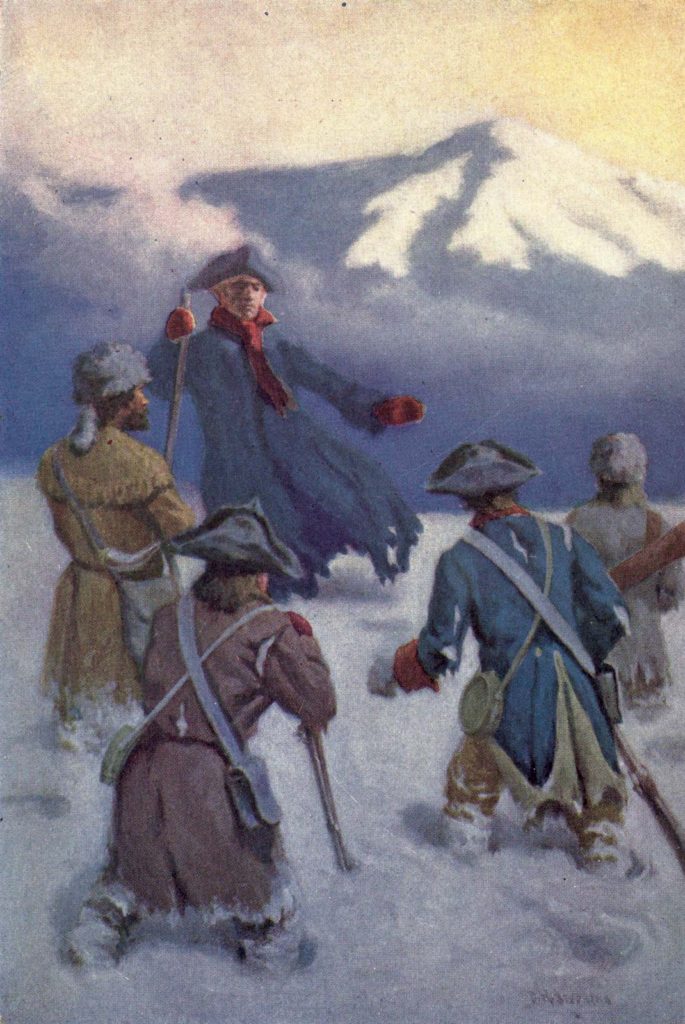Preparing to Write Pike’s Wrong
This is an article about preparation, or to be more exact, the lack of said preparation.
Standing at the edge of one my previous jobs, I could easily see the Front Range of the Rockies stabbing their defiant fists into the air. The most prominent fist is Pikes Peak, what the brochures call “America’s Mountain.”
One cold morning, while sucking down copious amounts of coffee and staring off into the vastness of the desert, I was reminded of Zebulon Pike and how mistakes often turn into something else entirely, how mistakes can actually be a good thing.
A Brief History
For the history buffs out there, Capt. Zebulon Pike first spotted what he called “the Grand Peak” on November 15, 1806. As he pushed up the Arkansas River into what is now Pueblo, he decided to attempt a climb of the mountain that now bears his name. On November 24th, a four-man climbing party left their camp to begin their ascent.
Due to Pike’s distance miscalculations, it took two days, not one, to reach the base of the mountains. On the morning of the 26th, the climb began. However, continuing miscalculations of distance and deteriorating weather prevented them from reaching the summit by nightfall.
The following morning, Pike arrived at the summit. His climbing party was treated to a spectacular view of oceans of clouds below them and a panoramic blue sky above. Their view also showed that due to their previously obscured view of the peaks from the valley floor, they had climbed the wrong peak and were standing atop 11,504 ft. Mt. Rosa.
The Grand Peak was fifteen miles away.
Pike wrote in his journal:
…here we found the snow middle deep; no sign of beast or bird inhabiting this region. The thermometer which stood at 9° above 0 at the foot of the mountain, here fell to 4° below 0. The summit of the Grand Peak, which was entirely bare of vegetation and covered with snow, now appeared at the distance of 15 or 16 miles from us, and as high again as what we had ascended, and would have taken a whole day’s march to have arrived at its base, when I believed no human being could have ascended to its pinical [sic]. This with the condition of my soldiers who had only light overalls on, and no stockings, and every way ill provided to endure the inclemency of the region; the bad prospect of killing any thing to subsist on, with the further detention of two or three days, which it must occasion, determined us to return.
The end result? Zebulon Pike never made it to the top of his own mountain.
I sometimes imagine it really went down like this:
Zeb: Alas! We have reached this Grand Peak!
1st Unnamed Soldier Lost to History: We ain’t there boss. I’m chilly. My fingers are numbs.
Zeb: And?
2nd Unnamed Soldier Lost to History: My feetsies are cold. Can we go now?
(Probably didn’t happen that way except in my alternate universe.)
I find all this interesting from a writer’s point of view. After all, authors are not perfect; they make mistakes and some of those mistakes are based more on a lack of preparation than anything else.
To prevent mistakes or to correct them before they become disastrous to the process, thousands of books have been written on the subject. There are books on introspection, books on how to be the perfect author, books on how to be the perfect author while introspection puts you on your head.
Authors are prone to mistakes, even the best of the best. And while some authors eventually reach the peak, others do not.
What is the difference when we all make mistakes?
Preparation
Recall that Pike’s climbing party “had only light overalls on, and no stockings, and every way ill provided to endure the inclemency of the region.” In short, they weren’t prepared to make the climb. They didn’t have the appropriate clothing to endure the rough conditions of that November in Colorado. Had Pike believed there to be more than desert in the West, he might have prepared his troops better, let them take their coats and hats and gloves and scarves.
Had he been prepared, Pike might have reached the summit.
Using Pike’s story as allegory, how do writers prepare for their climb up a mountain, from the initial spark of an idea to the bestseller lists, from start to finish? That mountain of any career is wrought with peril, is it not?
There are cold spots, crevasses, ice caves, even abominable snowmen. There are mistakes to be made along the way to the top, and any writer who tells you he or she has never made a mistake—has never been totally prepared for the climb—is…well…might be…um…not being totally honest.
When I talk about preparation in writing, I am not asking if you have a pipe like Ernest Hemingway or a new laptop with all the distracting bells and whistles. I am not asking if you have your leather-bound journal or your Montblanc fountain pen.
I’m also not asking if you even have an idea that might make a good story. We all have ideas, even those who do not write. Ideas are thoughts, born through the interaction of synapses. They are a part of life and do not stop until the brain stops.
My idea of preparation means having a plan of attack, being able to visualize the possible barriers to completing a story and then being ready to conquer them with the proper tools.
With NaNoWriMo coming in November, are you prepared? With looming deadlines handed down by your publisher or agent, are you prepared?
Preparation is also about surrounding yourself with other writers and readers and support people who will climb the mountain with you.
Preparation is about paths (the trail you plan to use), about goals (the reason you’re climbing in the first place) and about strategy (knowing the tools to use and when to use them).
All writers need to have a goal. You see a mountain in the distance and you say you’ll reach the top.
Many people don’t make it. They start out with shorts and slippers and expect to be warm at the top. Although they really wanted to climb the mountain, they didn’t prepare for the journey.
They didn’t learn from Pike’s mistakes and didn’t right his wrong. Or is that “write” his wrong?



















